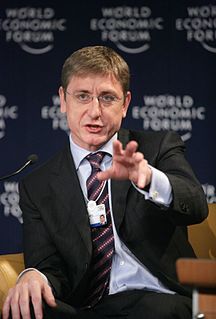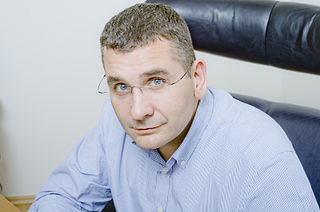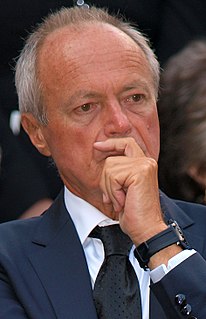
Péter Medgyessy is a Hungarian politician and was the Prime Minister of the Republic of Hungary from 27 May 2002 until 29 September 2004. On 25 August 2004 he resigned over disputes with coalition partner Alliance of Free Democrats, but remained caretaker Prime Minister for a 30-day period as required by the Constitution, and a few additional days until his successor Ferenc Gyurcsány was confirmed by Parliament.

The National Assembly is the parliament of Hungary. The unicameral body consists of 199 members elected to 4-year terms. Election of members is based on a complex system involving both area and list election; parties must win at least 5% of the popular vote in order to enter the list of members of the assembly. The Assembly includes 25 standing committees to debate and report on introduced bills and to supervise the activities of the ministers. The Constitutional Court of Hungary has the right to challenge legislation on the grounds of constitutionality. The assembly has met in the Hungarian Parliament Building in Budapest since 1902.

Viktor Mihály Orbán is a Hungarian politician serving as Prime Minister of Hungary since 2010. He also served as Prime Minister from 1998 to 2002. He is the present leader of the national conservative Fidesz party, a post he has held since 2003 and, previously, from 1993 to 2000.

The Democratic Coalition is a social-liberal political party in Hungary led by former Prime Minister Ferenc Gyurcsány. Founded in 2010 as a faction within the Socialist Party (MSZP), the Democratic Coalition split from the MSZP on 22 October 2011 and became a separate party. It has nine MPs in the National Assembly and two MEPs in the European Parliament.
Elections in Hungary are held at two levels: general elections to elect the members of the National Assembly and local elections to elect local authorities. European Parliament elections are also held every 5 years.

The 2006 protests in Hungary were a series of anti-government protests triggered by the release of Hungarian Prime Minister Ferenc Gyurcsány's private speech in which he confessed that his Hungarian Socialist Party had lied to win the 2006 election, and had done nothing worth mentioning in the previous four years of governing. Most of the events took place in Budapest and other major cities between 17 September and 23 October. It was the first sustained protest in Hungary since 1989.
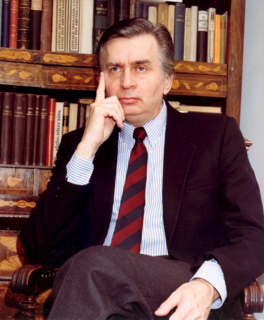
The 1990 Hungarian parliamentary elections were held in Hungary on 25 March 1990, with a second round of voting taking place in all but five single member constituencies on 8 April. They were the first completely free and competitive elections to be held in the country since 1945, and only the second free elections in the country's history. The conservative, nationalist Hungarian Democratic Forum (MDF) beat the liberal and more internationalist Alliance of Free Democrats, which had spearheaded opposition to Communist rule in 1989, to become the largest party in parliament. The Hungarian Socialist Party, the former Communist party, suffered a crushing defeat, winning only 33 seats for fourth place.
A referendum on joining the European Union was held in Hungary on 12 April 2003. The proposal was approved by 83.8% of voters, with a voter turnout of 45.6%. Hungary subsequently joined the EU on 1 May 2004.

Parliamentary elections were held in Hungary on 11 and 25 April 2010 to choose MPs for the National Assembly. They were the sixth free elections since the end of communist era. 386 members of parliament were elected in a combined system of party lists and electoral constituencies. The electoral law does not allow all adult citizens to stand for being elected unless they can validate 500 signatures of other citizens supporting their candidacy.

Csaba Molnár is a Hungarian politician and Member of the European Parliament (MEP) from Hungary. He is a member of the Democratic Coalition. He served as Minister of Transport, Communications and Energy in the second cabinet of Ferenc Gyurcsány, later as a Minister of the Prime Minister's Office in the government of Gordon Bajnai.
Hungarian local elections, 2006 took place on 1 October 2006 amidst a period of protests and demonstrations against the government of Prime Minister Ferenc Gyurcsány. In many cities, demonstrators urged people not to vote for the MSZP candidate at the elections, and Fidesz made heavy use of the fact that Gyurcsány had admitted lying in its campaign leaflets and phone calls.
Klubrádió is a commercial talk and news radio station based in Budapest, Hungary. Klubrádió is often labeled as the voice of the left-liberal opposition. Many on the right and far-right find it important to emphasize what they perceive as the political bias of Klubrádió by pointing to the fact that Klubrádió has hired a liberal politician as a host since 2008. The then-active SZDSZ MP, also former party chairman Gábor Kuncze was the Minister of Interior appointed by the liberal party, SZDSZ. Socialist Prime Minister Ferenc Gyurcsány also hosted once a program on Klubrádió while in office. Klubrádió was started broadcasting in April 1999, as the official radio of the Hungarian Auto Club (HAC). After HAC sold the station to Monográf Zrt, the original programming of the Auto Club changed, and the broadcast format was completely transformed into a talk and news station.
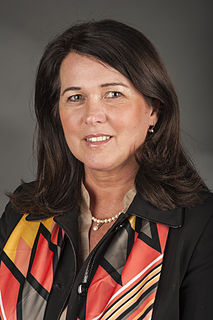
The European Parliament election, 2014 for the election of the delegation from Hungary to the European Parliament was held on 25 May 2014.

Hungarian Liberal Party is a liberal political party in Hungary that was formed on 27 April 2013 and is led by Gábor Fodor, a former MP and president of the Alliance of Free Democrats (SZDSZ).

The 2014 Hungarian parliamentary election took place on 6 April 2014. This parliamentary election was the 7th since the 1990 first multi-party election. The result was a victory for the Fidesz–KDNP alliance, preserving its two-thirds majority, with Viktor Orbán remaining Prime Minister. It was the first election under the new Constitution of Hungary which came into force on 1 January 2012. The new electoral law also entered into force that day. For the first time since Hungary's transition to democracy, the election had a single round. The voters elected 199 MPs instead of the previous 386 lawmakers.

A referendum related to the European Union's migrant relocation plans was held in Hungary on 2 October 2016. The referendum was initiated by the government, under the provision of article 8 of the new constitution of 2012. It was commonly referred to as the kvótanépszavazás or kvótareferendum in the Hungarian media.
The first indirect presidential election was held in Hungary on 3 August 1990, following the transition to multy-party democracy. Árpád Göncz (SZDSZ), Speaker of the National Assembly and acting head of state, was elected President with an absolute majority.



